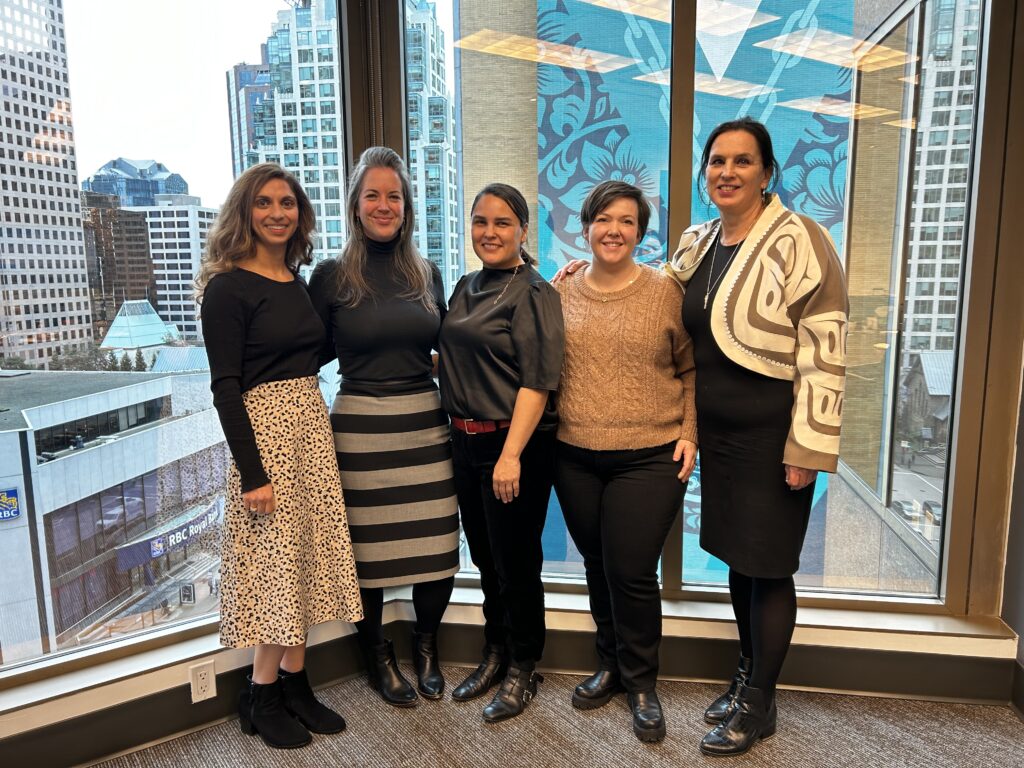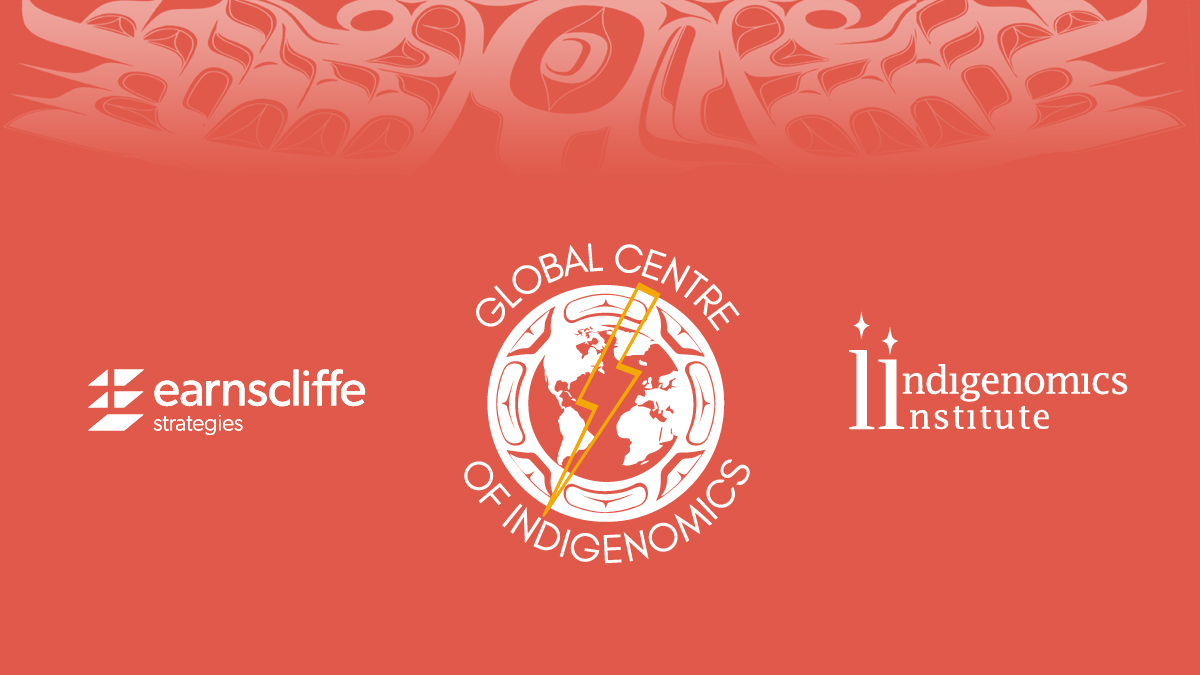Earlier this month, The Indigenomics Institute and Earnscliffe Strategies announced a new partnership to amplify the work Indigenomics is leading to advance economic reconciliation.
We sat down with Carol Anne Hilton, Founder of The Indigenomics Institute and The Global Centre of Indigenomics, and Katie Shaw, Principal at Earnscliffe Strategies, to discuss the new partnership.

Carol Anne, to start us off, can you tell us a bit about The Indigenomics Institute and what you do?
Carol Anne Hilton: The Indigenomics Institute is an Indigenous economic consultancy started in 2018 to advise governments, Indigenous communities and the private sector on ways to unlock the potential of the growing Indigenous economy. Our goal is to focus on the growth of the Indigenous economy towards $100 billion and bring visibility to Indigenous economic strength nationally. On the international front, through the establishment of the Global Centre of Indigenomics, we play at the intersection of sustainability, economic innovation, technology and Indigenous worldview.
What initially sparked your interest in the partnership between the Indigenomics Institute and Earnscliffe?
Katie Shaw: We met ten years ago when we were both working on a common consulting project. Right away I saw that Carol Anne was a force to be reckoned with and invited her for sushi – a lot. I knew that I had a lot to learn about real economic reconciliation, and am still learning. I believed Carol Anne’s voice and vision was going to be a changemaker in ways I didn’t even understand yet. Over the years and many sushi dinners, Carol Anne published her first book, Indigenomics: Taking A Seat at the Economic Table and slowly but surely built a grassroots movement, which is now exploding into positive action and economic outcomes. Our organization and I realize this is an opportunity for everyone to become engaged if we can build robust and sustained Indigenous economic inclusion across sectors. I see the work now kicking this work off in business and government sectors. We have to start deconstructing the Indian Act in a real way, with Indigenous peoples as leaders.
CAH: We have stayed connected over the years and intended to do some co-writing together on key topics and it eventually evolved into this strategic partnership. We found a convergent point within the work Katie was doing at Earnscliffe. The status quo colonial processes for economic development is not keeping up with the actual pace of Indigenous business. We are seeing greater interest in authentic and meaningful partnerships with Indigenous communities and businesses. Earnscliffe is bringing tools to collaborate and move this work forward with expertise in public affairs, event communications and partnerships.
Where do you see values align between our organizations?
CAH: Last year, Earnscliffe became a sponsor of the Indigenomics DESIGN annual conference. It was a natural collaboration in moving forward. I see Earnscliffe has a strong ecosystem of economic reconciliation, and there was a clear opportunity to align our voices and amplify a platform for Indigenous leadership in the mainstream economy.
KS: From Earnscliffe’s point of view, the sectors we work with are all grappling with how to do reconciliation well particularly within the current constraints of government policies and structures. Many jurisdictions across Canada are making positive changes, such as the Declaration on the Rights of Indigenous Peoples Act in B.C., but this is just the beginning. The Indigenomics Institute provides tangible, tactical frameworks for businesses to change the way they work and advance reconciliation.
What are some tools and structures for advancing reconciliation through business?
CAH: Procurement is an important tool. By providing procurement standards to engage with more Indigenous communities and businesses – this creates clear economic opportunity for new and emerging Indigenous-led capital structures that are changing the playing field for Indigenous entrepreneurs. Furthermore, many businesses are now investing in sponsorship programs for Indigenous education in all sorts of fields like engineering, business, finance and law.
KS: Carol Anne’s work is truly transformational, shifting the way businesses approach ownership and equity stakes. Conventionally some sectors have engaged First Nations transactionally with a dollar exchange. The Indigenomics Institute is expanding these frameworks to include the Nations’ economic priorities, led and developed by Indigenous peoples themselves. These efforts are beginning to surface through more equity partnerships that include Indigenous-led training, development and procurement standards.
What policy changes will facilitate Indigenous economic empowerment?
CAH: We need to see more capital investment structures for Indigenous businesses, community economic development and entrepreneurs. Take the National Aboriginal Capital Corporations Association (NACCA), for example. The federal government invested $100 million in 2019 for NACCA to launch the first and largest Indigenous social impact fund in the country, providing Indigenous entrepreneurs access to capital to start and grow businesses. It’s this kind of economic priority setting we hope all levels of government will focus on in the coming months and years.
KS: For real change you need bold leadership, and politics and power are central to public policy. I can’t stress enough that ideas matter – and from my perspective, ideas from those traditionally left out of policy making matter more than ever. Stating that Indigenous economic development is a commitment is not enough. The real – and I think exciting – opportunity is to intersect ideas with the actual mechanisms that set policy. Indigenomics provides real tools, real ideas. I am committed to getting those ideas the attention they deserve and the actual opportunity to be applied.
What are you most excited about accomplishing together this year?
KS: Being one of the first firms in the space to forge a partnership like this is both a power move and a recognition that the work we do here at Earnscliffe must keep reconciliation at the forefront. Indigenomics has so much impactful work going on, I feel both privilege and gratitude to support all of it.
CAH: It really is a power move. I’m most excited about how we are linking this completely new way of thinking about reconciliation in the business community and government, bringing the United Nations Declaration on the Rights of Indigenous People to life across the country. And of course, I’m excited for more sushi.
